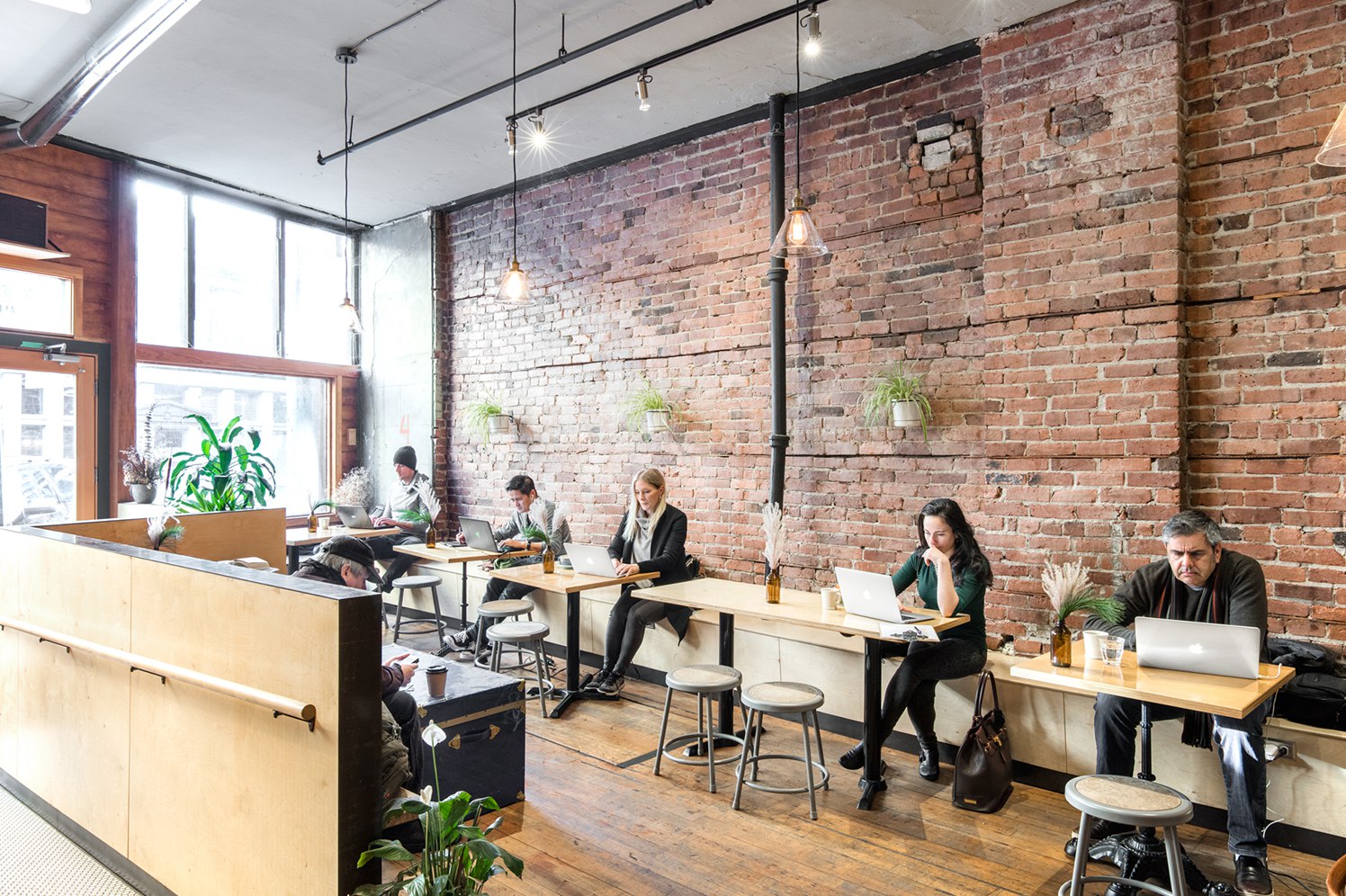Ditching the nine-to-five office environment might have been one incentive to start your own business. But finding a functional work space isn’t always easy. Freelancers, entrepreneurs and sole proprietors may find themselves isolated and missing social interaction, or struggling to find a professional space to host meetings with potential clients.

Cafes have long been a frugal, budget-friendly option as the price of a cup of coffee gets you free Wi-Fi, power outlets and a space for informal meetings. The trade-off is that you are in a very public space — it may be hard to take a work call when there is loud muzak playing in the background or someone next to you comes precariously close to spilling coffee on your ‘desk.’
Some chains might put restrictions on Wi-Fi use at busy times, while other independent cafes encourage workers on quiet weekdays by offering communal tables and freelance events. Freelance Friday is a global community of freelancers who meet to cowork in cafes, offices and other venues. The Vancouver chapter meets once a month to network and offer quiet-time ‘sprints’ where participants are invited to work together.
This type of work space can work for some entrepreneurs, but other people require something more structured. Coworking spaces have boomed in recent years as startups and sole proprietors look for communal spaces that offers private offices as well as resources such as meeting rooms, call booths, printers and IT support.
Coworking spaces come in all shapes and sizes. Day passes tend to be around $25 and membership can range from around $75 to $100 for a once-a-week pass to $250 (or more) for monthly membership, which includes a ‘hot desk’ — a non-designated space at a communal desk. Permanent desk spaces are also often available for more; these are ideal for people who have a large monitor or kit that needs to be left overnight. Private office spaces are a good option for growing businesses that want privacy and networking opportunities. Most memberships usually include a P.O. box and limited boardroom hours.
These spaces also present an opportunity for networking. And most spaces also include kitchens where they host happy hours, social events and informal networking dinners, which offer good opportunities to meet coworkers in a more relaxed setting. When choosing a coworking space there are several things to consider, such as: What other types of businesses are working out of the space? Are they in a similar industry? Is there a chance for collaboration?
Coworking passports are an affordable way to check out a few spaces before deciding on the one that works for you. They are also ideal for cross-Canada travellers looking for a ‘home base’ on both coasts. Check out the BC Coworking Passport or find out if your coworking space is part of the ‘coworking visa’ programme, which allows entry to international spaces around the world.
David Marvin Botwick-Ries is a community manager at Homestead, a coworking space in Edmonton. He’s seen coworking grow in popularity as early adopters such as tech companies have been joined by a wider base of people and businesses looking to share office space. Younger generations are also more familiar with the sharing economy, whether it’s with cars or coworking. “Small businesses and startups are driving the economy forward,” says David. “But the solo nature of working in your house and the haphazard nature of working in a coffee shop are not quite cutting it for people. They’re starting to see the value of coworking.”
David introduced Square to Homestead when he began working there in March. “We understand the flexibility and value in taking credit card payments,” he says. “It’s a great option for people coming in to cowork for the day or book a meeting room.” The space also uses Square for sales of merchandise and day passes.
David has noticed that today’s coworking spaces have become more intentional than previous incarnations, which just offered space. “The productivity aspect is everything,” says David. “Members say what drives them to the space is that it’s professional and quiet.”
Related Articles:
Behind the Scenes: Makerspaces
Seven Ways Technology Can Help Your Business Grow This Year
How to Successfully Pitch an Investor
